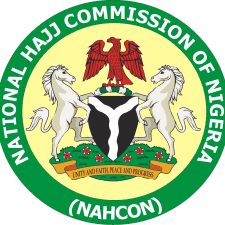The National Hajj Commission of Nigeria (NAHCON) says intending pilgrims will pay more for Hajj fare to be able to stay in tents in Muna that are closer to Jamrat.
The Chairman of NAHCON, Malam Jalal Arabi, stated this at a news conference held at the Commission’s headquarters in Makkah on Sunday.
The News Agency of Nigeria (NAN) reports that the tent camps for Nigerians and other African countries are over three kilometers from Jamrat.
The Jamrat is where the symbolic stoning of the Devil takes place during the hajj rituals.
The distance means Nigerians had to make a one way journey of one hour to the place to do the stoning.
Arabi, however, said that Nigeria could get closer tents with increased fare which the commission was not currently considering.
“The issue of getting tents in Muna and Arafat is money. That is why you hear complaints of people paying so much money to get tent, but they don’t.
“The tent is pegged on payment close to 20,000 Saudi Riyal; imagine lumping that amount on Hajj fare to our intending pilgrims.
“So, it is the case of let me buy what I can afford. That was what we did. We bought the ones we can afford but with quality in it.
“If wishes were horses, all our pilgrims will be in Tent A, B or C.”
He said that the other option for the tent was early payment which for now was not feasible due to the culture of late payment of hajj fare in Nigeria.
He added that the commission was still awaiting reports on the challenges faced by some state governors and high personalities about access to Tent A.
“No Nigerian pilgrim will say he or she didn’t get a space while in Muna or food; but we know the challenges of inadequate toilets.”
The NAHCON boss stated that the commission was able to move Nigerians out of ghettos and got accommodation with improved services.
“Going forward, with Allah’s help in our capacity and currency gaining strength, we will get it right.”
He added that with the timetable for the 2025 Hajj released, it would ensure early preparation for participants and the money to be paid.
On the issue of illegal pilgrims, often referred to as Takari, Arabi said most of them operate in concert with some legal persons.(NAN)



